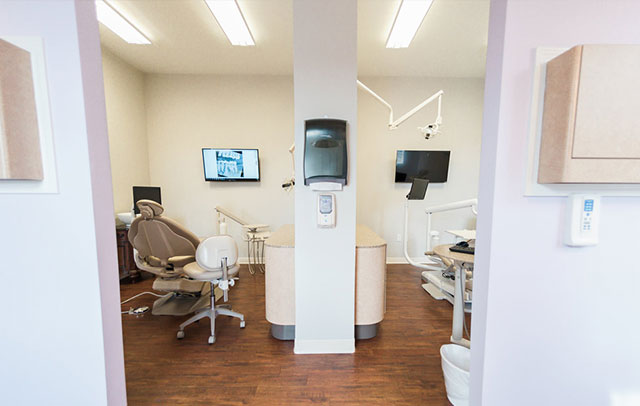
Endodontic Surgery
Saving your teeth is always the goal of endodontists. However, sometimes, they cannot use non-surgical means, such as root canal treatment, to do so and must resort to surgery. Entrust your smile to Dr. Estes and the team at Innovative Endodontics if you require endodontic surgery in Charleston, SC. You will get the latest equipment and Dr. Estes's expert knowledge plus the care of a professional staff when you schedule surgery with us.
About Endodontic Surgery in Charleston, SC
There are several types of endodontic surgery and many reasons for needing them. For instance, you may need retreatment of a root canal or the application of finer tools for clearing out narrow canals in your tooth.
The most common form of endodontic surgery is an apicoectomy. When you get an apicoectomy in Charleston, SC, at Innovative Endodontics, Dr. Estes will perform a series of steps. During this procedure, the endodontist gently moves the gums to expose the root of the tooth. They will treat the end of the root and any infected material before closing the treated area with sutures. The bone will heal in the treated area over the next several months.
Other types of endodontic surgery include:
Intentional replantation, in which the endodontist pulls the tooth, treats it and replaces it.
Dividing a tooth
Removing damaged roots
Repairing roots
You will have a local anesthetic to prevent you from feeling pain during the procedure. As this wears off, you may have some minor discomfort, depending on the type of surgery you had. However, keep in mind, Dr. Estes will provide you with appropriate pain management and instructions to keep you comfortable.
Endodontic Surgery FAQ
Do you need an antibiotic for a root canal? Answer: Antibiotics are only indicated for true infections such as facial swelling, fever, or feeling run down which indicate systemic symptoms. Pain is not an indication for an antibiotic.
Are narcotics indicated in conjunction with Endodontic procedures? Answer: Dental pain studies show that the combination of ibuprofen and Tylenol is superior to medications like hydrocodone and Percocet. Dr. Estes rarely prescribes narcotics since she follows the research! Plus, she doesn’t have to worry about the common concerns with narcotic prescribing.
Why You May Need an
Apicoectomy or Endodontic
Surgery
All Treatments
Resources


Contact Us
You may require endodontic surgery for several reasons. These include diagnosis, a more predictable treatment outcome, or removing inaccessible inflamed material.
If your tooth’s root end has an infection or inflammation, the endodontist may not be able to treat it with a routine root canal. They will need to perform an apicoectomy to access the end of the root.
For people who have exceptionally narrow canals, the endodontist may find these during root canal treatment. However, they may suggest that you return for surgery to use the smaller tools available to clean out these calcified channels thoroughly.
Always talk to your endodontist for the best advice for your specific case because everyone has different needs for their teeth.


About Innovative Endodontics Serving Charleston, SC
Any type of surgery is a significant decision. However, if your dentist or endodontist recommends that you have an apicoectomy or other endodontic procedure, contact us at our practice, Innovative Endodontics. We have the equipment to help Dr. Estes provide you with the best surgical care possible. For example, we have invested in the high-power operating microscopes from Zeiss that light the area and magnify it. By seeing more clearly into your tooth, Dr. Estes can spot areas that require treatment other methods may miss.
Let us give you the superior experience that you deserve when undergoing endodontic treatment. Make us your first choice for endodontic surgery in Charleston, SC, and we will do what we can to help you keep your smile.
Areas we serve:
Summerville, SC
North Charleston, SC
Charleston, SC
Mount Pleasant, SC
Goose Creek, SC
Whitesville, SC
Moncks Corner, SC
MENU
MONCKS CORNER
2900 N Main St, Suite G
Moncks Corner, SC 29461
Hours
Mon. 8:00am-5:00pm
Tue. 8:00am-5:00pm
Wed. 10:00am-5:00pm
Thur. 8:00am-5:00pm
Fri. 8:00am-5:00pm
SUMMERVILLE
227 Stallsville Loop
Summerville, SC 29485
Hours
Mon. 8:00am-5:00pm
Tue. 8:00am-5:00pm
Wed. 10:00am-5:00pm
Thur. 8:00am-5:00pm
Fri. 8:00am-5:00pm
CONTACT US
AREAS SERVED